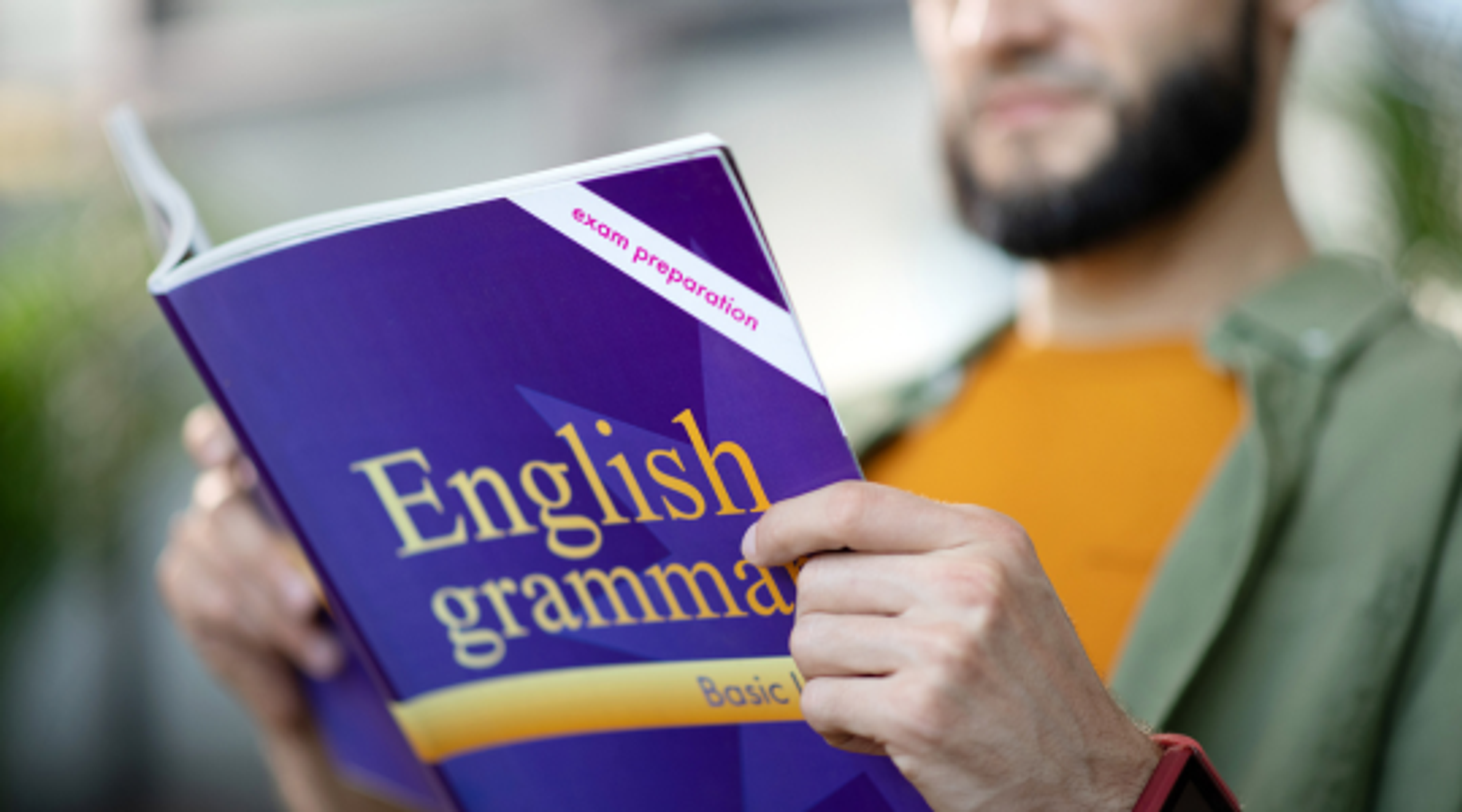Jan 16, 2025
10 New Year’s Resolutions for English Learners

Evie Lucas
Table of content
The end of the year is a time for rest and rejuvenation, but as we emerge from piles of chocolate wrappers and warm blankets, it’s time to think about the year ahead.
Now is the perfect time to review your language progress, celebrate your successes, and set out what you’d like to achieve in 2026. For some, this might be as simple as creating a stronger routine. For others, 2025 could bring your next big milestone or overseas adventure.
The key to successful resolutions is to be realistic. Setting high expectations is great, but your language goal must be achievable. Otherwise, you risk burning out by February and losing your momentum. Avoid vague intentions and create SMART goals. This means your objectives should be:
- Specific: Clearly define what you want to accomplish (e.g. I will learn 500 new words).
- Measurable: Find a way to track your progress (e.g. I will learn 10 new words a day).
- Achievable: Ensure your goal fits in with your resources and schedule.
- Realistic: Is your goal attainable? Be honest with yourself about what is possible in a year.
- Timely: Set a deadline to keep yourself on track (e.g. I will learn 500 words by the end of December 2025).
Another useful tip is to share your plans with other people – ideally somebody close enough to hold you accountable if you fall behind.
Whatever your level, setting clear goals is essential in making solid progress. So, to inspire you on your 2025 language learning journey, we’ve compiled 10 language resolution ideas, suitable for beginners to near-fluent speakers.

1) Have Your First Conversation with a Native Speaker
Let’s begin with a big one: your first conversation with a native English speaker. Many language learners postpone real world English practice and lag behind on their speaking skills. While it’s natural to feel nervous, delaying this important milestone for too long can make that first time even scarier. If reading this is triggering a pang of guilt, it might be time to take the plunge!
Speaking with a native English speaker doesn’t have to be terrifying or require miles of travel. Instead, try one of the many language exchange apps available on your phone, like HelloTalk or Tandem. These apps are free and connect users with native speakers based on their language level.
If you’re not quite ready to dive into unstructured conversation, ITalki offers a more guided approach. Think of it as a bike with training wheels: for as little as £5, you can book a personalised lesson with a qualified native teacher and build your confidence before going it alone.
2) Plan Your First Trip Abroad
You’ve perfected your grammar, exhausted every language resource, and even finished your first English novel. Or maybe you’re a beginner in need of some real-world inspiration. Whatever the reason, a trip abroad to an English-speaking country could give you the motivation you need to level up your learning.
Travelling abroad immerses you in the food, atmosphere, and culture in ways that no textbook or class can replicate. Plus, you’ll be practising your language skills every day, often without even realising it.
If travelling alone sounds intimidating, why not join a residential language course? Programs like Twin’s residential courses in London, Eastbourne, and Dublin offer an unparalleled opportunity to immerse yourself in English culture and language with the support of a whole community of other language learners.

3) Make (More) Mistakes!
At first glance, this might seem like a strange resolution - but mistakes are the driver of progress. While focusing on accuracy is important, this focus can become a fixation that holds learners back.
This year, embracing mistakes could revolutionise your language learning. Here are some examples of SMART goals to help you leave your comfort zone:
- Make one mistake a day - then correct it.
- Boost your confidence by doing something that scares you once a week.
- Dedicate one hour a week to judgement-free speaking practice, prioritising communication over accuracy.
Freeing yourself from the fear of failure is liberating. So, go forth and make more mistakes this year! Your English – and your confidence - will thank you for it.
4) Start Speaking
I’m not ready yet. Just one more chapter of the textbook. I’d never understand a native speaker.
Sound familiar? While these common thoughts are valid, nobody is ever truly ready to start speaking. In reality, there is only one way to improve your speaking skills: by speaking.
If the thought of a full conversation with a native English speaker feels overwhelming, start small with low-pressure alternatives:
- Talk to yourself: Doing some chores? Translate your internal monologue into English. Spending 15 minutes in the shower? Chat to yourself about your plans for the day. You might feel a little crazy at first, but trust us – it works!
- Find a study buddy: One-sided conversation not your thing? Team up with another English learner! Practising with other learners at a similar level can bridge the gap between real-world conversations and independent study.
Languages are for communication, after all – so make 2025 the year you start speaking!

5) Consolidate Your Grammar Knowledge
Maybe you’ve reached a point where communicating in English feels natural: you can order a coffee, hold a conversation, and even apply for jobs in English.
Firstly, congratulations for perfecting the skill most learners find the most difficult! But, as always, there’s room for improvement. Now is the perfect time to revisit and refine your grammar. Dust off that grammar textbook and revise the rules, from the very basics to more complex exceptions.
If your English skills are already functional, finding the motivation to return to the boring parts can be difficult. Still, the new year is the perfect time to commit to strengthening your grammar knowledge. The longer you leave it, the harder it becomes to correct those hard-worn habits.
6) Build a Study Routine
When it comes to language learning, consistency is key. Many learners – especially students – fall into the trap of cramming. Life gets busy, time slips away, and suddenly you have three months of content to squeeze into one week before the final examination.
While it’s easy to get caught in a cycle of burnout, relying on cramming will only hinder your progress. It’s impossible to retain everything you learned over a week without regular practice and review. This is where building a realistic study routine comes in.
Your routine should fit easily into your daily life and other commitments. If you set your expectations too high, you will quickly find that your goals are not sustainable. Equally, if
you set them too low, you might get bored and unmotivated by slow progress. It’s all about finding the right balance.

7) Find a Study Buddy
Feeling low on motivation? Language study can be a lonely pursuit: whether you’re spending long hours poring over a textbook or using Duolingo on your morning commute, the early stages are often spent alone.
To reignite your motivation for the New Year, try making your language practice less lonely. Maybe you already have a friend learning English, or you haven’t yet explored the many communities of English learners online. In 2025, try planning a weekly café study date with a friend, or joining a local group to meet other English learners.
8) Integrate Culture into Your Learning
Inject some fun into your language learning in 2025 by immersing yourself in English cultures at home. Not only will you learn a lot and prepare yourself for future travel plans; you’ll also improve your English skills.
Food lovers can try following an English recipe and cooking up a classic dish. Alternatively, order in and treat yourself to an English movie night. Even at beginner level, switching on the subtitles can ease you into listening to authentic English.
For a more literary approach, you could try reading your first book in English. There are plenty of beginner friendly books to choose from. For example, The Alchemist by Paulo Coelho is short and uses simple language, or consider reading a children’s classic enjoyed by adults, such as Little Women, which was recently adapted into a movie, or the Harry Potter series.
If tackling a whole novel sounds intimidating, start with magazines, newspapers, or free articles online. No matter your level, there’s always an opportunity for some armchair travel.

9) Expand Your Vocabulary
You can say you’re feeling happy in English, but what if you’re feeling even happier? Maybe you’re joyful, or excited, or ecstatic. Don’t let your progress lead to complacency this year and take an active role in expanding your vocabulary.
To commit to this goal, try making a list of new words you encounter and learn them at the same time each week. Alternatively, you could invest in a ‘word of the day’ app for effortless exposure to 365 new words!
10) Sign Up for a Class
Invest in your learning this year by signing up for a language course. From weekend speaking exchanges to intensive residential programs, classes give you the structure and support to fulfil your potential and make meaningful progress.
On a Twin residential course, you can combine cultural exploration and real-world exposure with exceptional classroom teaching. Choose from bustling London, beautiful Eastbourne, or historic Dublin, and tailor your course to suit your needs. Plus, you’ll be surrounded by other English learners eager to make new memories and share their language-learning journeys.
Find out more here and make 2025 your year of adventure.
...
Whatever resolutions you set in 2025, we wish you a year filled with new milestones and exciting opportunities.
Happy New Year from Twin!